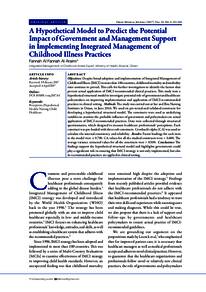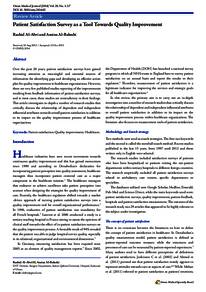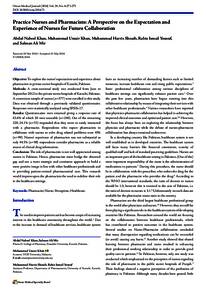Document
Health care and subjective well-being in nations.
Identifier
DOI: 10.4337/9781845423308.00035
Source
Research Companion to Organizational Health Psychology. p. 393-412
Contributors
Furnham, Adrian., Author
Veenhoven, Ruut. , Author
Country
United States.
City
Massachusetts
Publisher
Edward Elgar Publishing Ltd.
Gregorian
2005-01-01
Language
English
Subject
English abstract
Bruce Kirkcaldy, Adrian Furnham and Ruut Veenhoven The issue With the ever-increasing costs incurred by medical health care in the majority of the industrialized nations of the world, attempts have been made to identify and rectify the deficiencies in the health industry and improve quality management assessment. A central question for politicians and researchers is, to what extent does a country’s health care system influence the subjective well-being in its citizens? The World Health Report 2000 has been published in an attempt to evaluate diverse health services across the world with a view to comparing performance, and enabling policy makers to appreciate better the complexity of health care. Consequently, in ‘unprecedented degree it takes account of the role of people as providers and consumers of health services, as financial contributors to health systems, as workers within them, and as citizens engaged in their responsible management, or stewardship’ (WHO, 2001). It has been reported that only four of the 191 member nations of the World Health Organisation spend in excess of 10 per cent of the GDP on health services. These are the USA, Germany, Lebanon and Switzerland. The World Health Report suggests that the expenditure is not reflected in superior quality health service, with nations such as the USA being placed 37th, Germany 25th and Switzerland 20th. The nations ranked amongst the top ten in terms of overall health performance are France (1), Italy (2), San Marino (3), Andorra (4), Malta (5), Singapore (6), Spain (7), Oman
ISSN
978-184542330-8;978-184376624-7
Category
Journal articles





